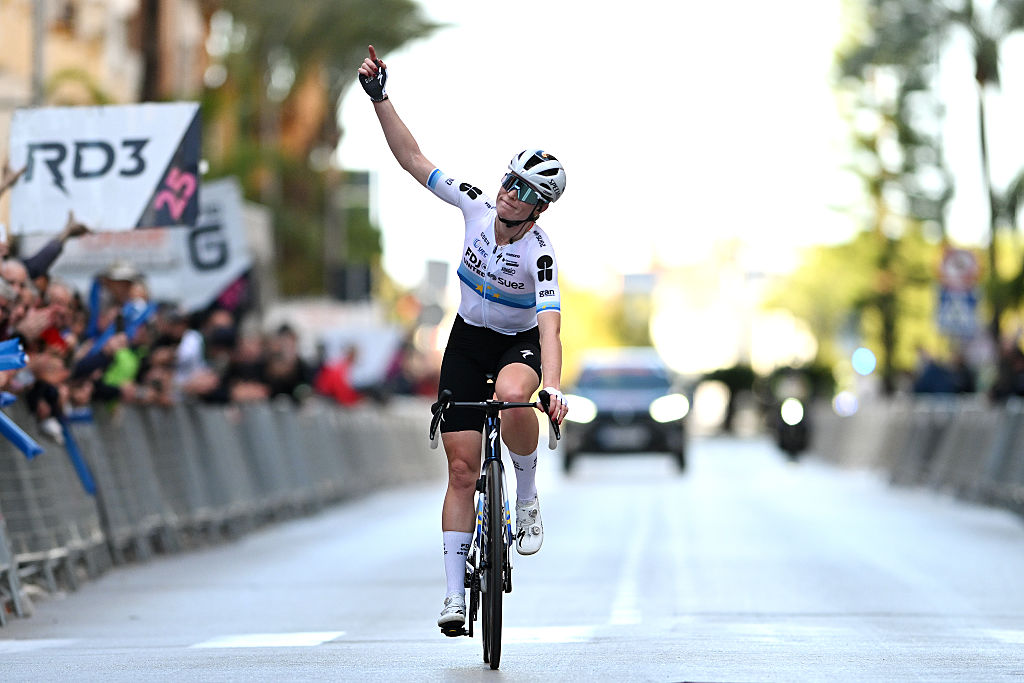Extreme Weather Protocol misses the mark in Paris-Nice
Peloton rides into treacherous conditions
The latest race content, interviews, features, reviews and expert buying guides, direct to your inbox!
You are now subscribed
Your newsletter sign-up was successful
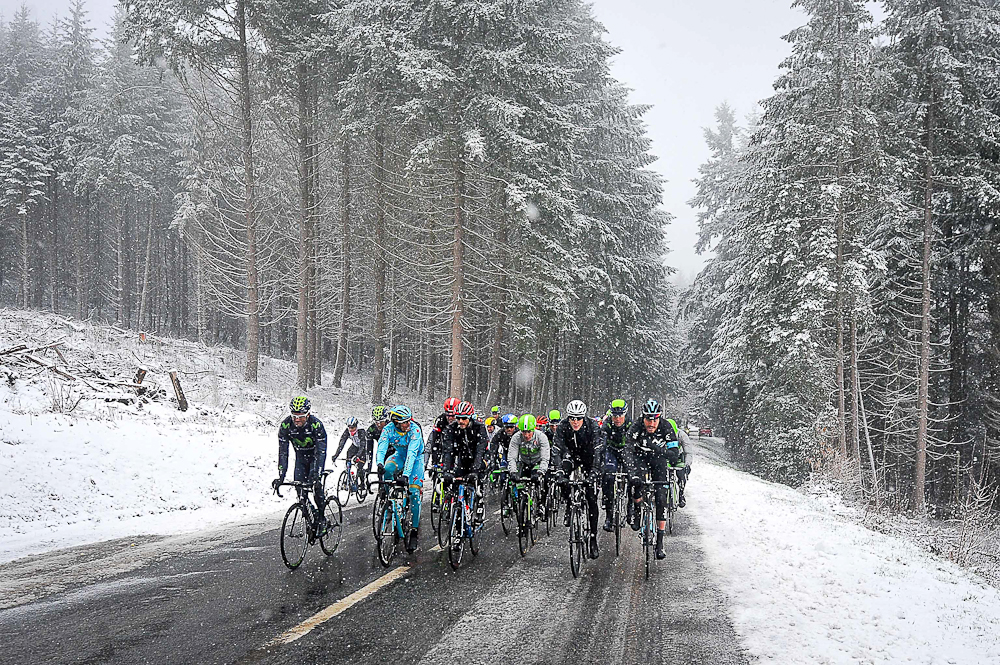
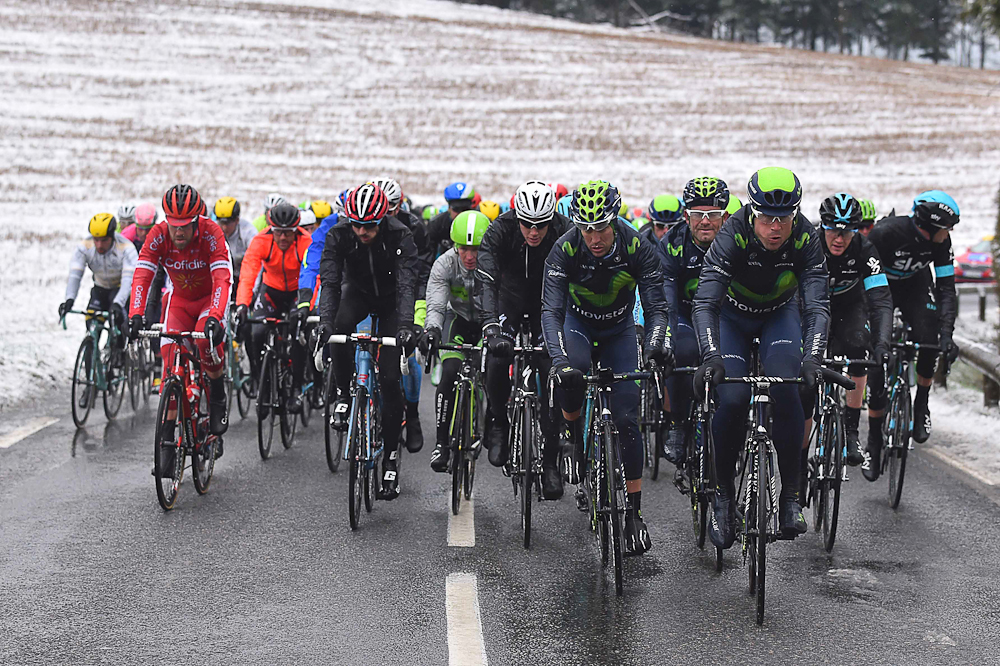
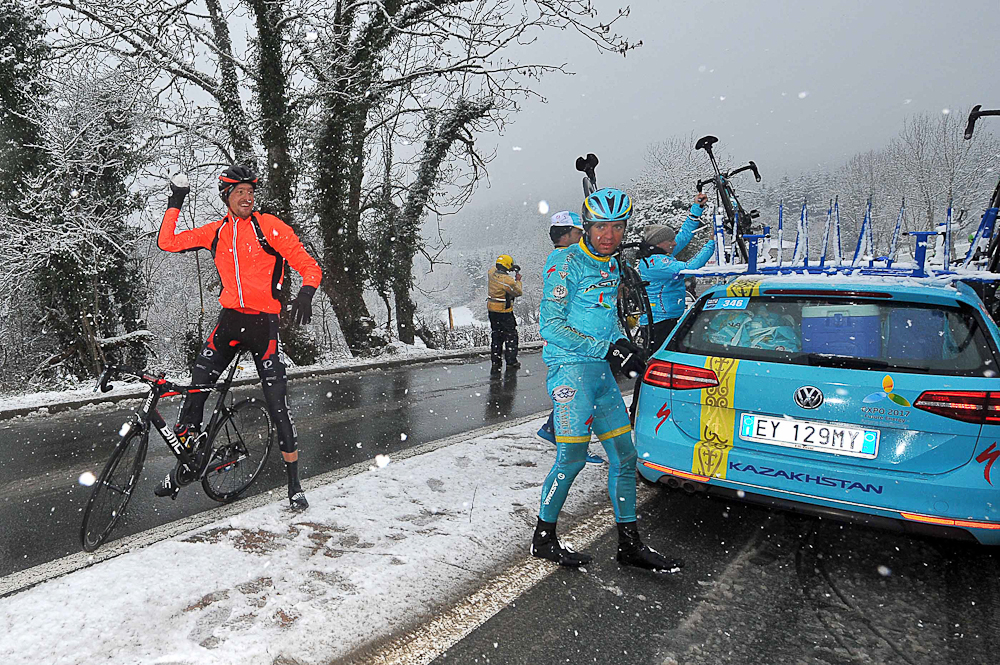
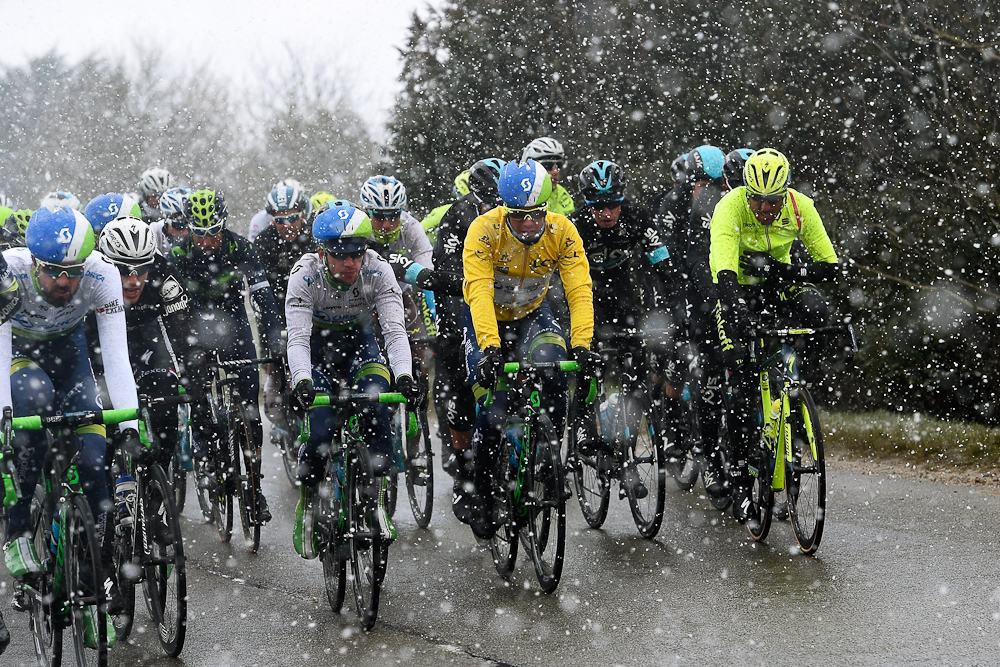
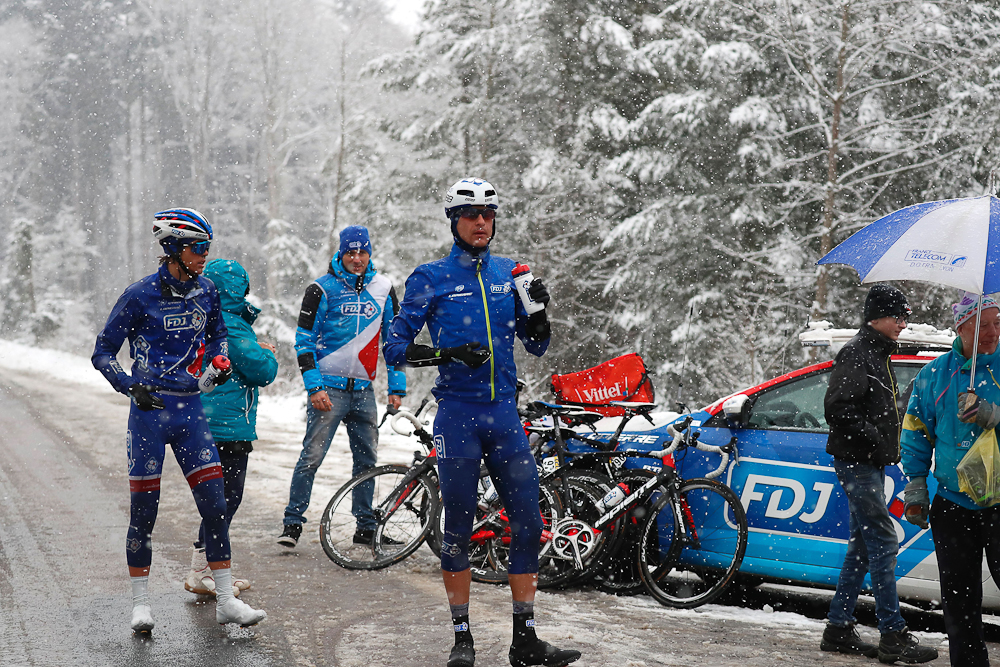
Stage 3 of Paris-Nice could have been the second successful test of the new UCI Extreme Weather Protocol, but instead, rapidly changing weather led the peloton into a snow storm with no alternate route planned. The officials only cancelled the stage when it became impossible for riders to continue.
The event was exactly what the protocol was designed to prevent, and came despite updated rules put into place surrounding the pre-race meeting that is to take place if bad weather is anticipated.
Cannondale team manager Jonathan Vaughters was critical of the Paris-Nice organisation on Twitter, writing, "I wonder when the powers that be in Paris-Nice will stop avoiding clearly written rules regards weather?"
Geraint Thomas (Sky) appeared to criticize the lack of an alternate route, also writing on Twitter, "Maybe there was another road we could have taken to get to the finish, that didn't go as high? And we could have raced #justathought".
Andre Greipel (Lotto Soudal) was surprised that the forecast of snow went unheeded. "A shame with all the technology we have nobody can make a decision be4 the stage as our team knew that there will be snow at the feeding," he stated on Twitter.
The lack of a solid pre-race plan came despite updated the protocol after the Clasica Almeria, where the morning meeting over dangerous wind conditions led to arguments over the plan for the day and miscommunication between the race organisation and the peloton.
In both Almeria and Paris-Nice, the peloton was driven by race organisers into the very same dangerous conditions that the weather protocol was designed to avoid.
The latest race content, interviews, features, reviews and expert buying guides, direct to your inbox!
On March 1, the UCI added new language to the protocol specifying which stakeholders would be involved in calling and/or attending the meeting to decide the course of action for a race. Those parties include the President of the Commissaires’ Panel, the race organiser’s representatives, the Race Director or representative, Race doctor, Chief of Security, a Teams’ representative designated by the AIGCP and a Riders’ representative designated by the CPA.
The CPA representative at Paris-Nice, Pascal Chanteur, explained that the weather changed quickly from what was anticipated. "I arrived very early at the place of departure to meet the UCI commissioners and the organizers. I was also in contact with the weather forecast to know the evolution of the day. The communication with each other was very good," Chanteur said.
He said the forecast for the high passes of stage 3 were not bad, even though the temperature was only a few degrees above freezing, and it was already raining. The parties responsible for the weather protocol decided to go ahead with the race, but Chanteur suggested a bus follow the peloton just in case.
"I myself was driving to the back of the peloton and the temperature was 4 to 5 degrees. The more kilometres advanced, the worse weather became," Chanteur said. The decision to stop the race was taken quickly. I want to commend the decision not to restart."
The Extreme Weather Protocol was implemented in 2016 to provide a framework for decision making when conditions exist that could make racing dangerous for the riders. Those conditions include freezing rain, snow accumulation, strong winds, extreme temperatures, poor visibility or air pollution. Depending on the conditions, a race could go forward without change, or with a modified start or finish time or location, on a modified or alternative course, or be cancelled entirely.

Laura Weislo has been with Cyclingnews since 2006 after making a switch from a career in science. As Managing Editor, she coordinates coverage for North American events and global news. As former elite-level road racer who dabbled in cyclo-cross and track, Laura has a passion for all three disciplines. When not working she likes to go camping and explore lesser traveled roads, paths and gravel tracks. Laura specialises in covering doping, anti-doping, UCI governance and performing data analysis.
